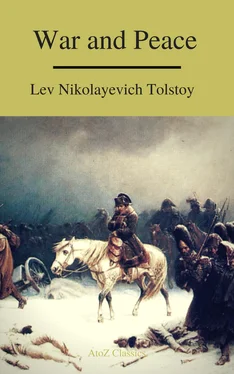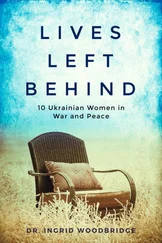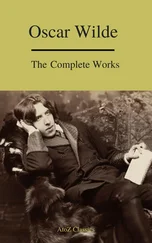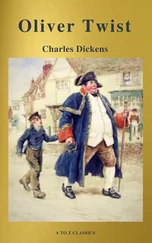Coming out of Kutuzov's room into the waiting room with the papers in his hand Prince Andrew came up to his comrade, the aide-de-camp on duty, Kozlovski, who was sitting at the window with a book.
"Well, Prince?" asked Kozlovski.
"I am ordered to write a memorandum explaining why we are not advancing."
"And why is it?"
Prince Andrew shrugged his shoulders.
"Any news from Mack?"
"No."
"If it were true that he has been beaten, news would have come."
"Probably," said Prince Andrew moving toward the outer door.
But at that instant a tall Austrian general in a greatcoat, with the order of Maria Theresa on his neck and a black bandage round his head, who had evidently just arrived, entered quickly, slamming the door. Prince Andrew stopped short.
"Commander in Chief Kutuzov?" said the newly arrived general speaking quickly with a harsh German accent, looking to both sides and advancing straight toward the inner door.
"The commander in chief is engaged," said Kozlovski, going hurriedly up to the unknown general and blocking his way to the door. "Whom shall I announce?"
The unknown general looked disdainfully down at Kozlovski, who was rather short, as if surprised that anyone should not know him.
"The commander in chief is engaged," repeated Kozlovski calmly.
The general's face clouded, his lips quivered and trembled. He took out a notebook, hurriedly scribbled something in pencil, tore out the leaf, gave it to Kozlovski, stepped quickly to the window, and threw himself into a chair, gazing at those in the room as if asking, "Why do they look at me?" Then he lifted his head, stretched his neck as if he intended to say something, but immediately, with affected indifference, began to hum to himself, producing a queer sound which immediately broke off. The door of the private room opened and Kutuzov appeared in the doorway. The general with the bandaged head bent forward as though running away from some danger, and, making long, quick strides with his thin legs, went up to Kutuzov.
"Vous voyez le malheureux Mack," he uttered in a broken voice.
Kutuzov's face as he stood in the open doorway remained perfectly immobile for a few moments. Then wrinkles ran over his face like a wave and his forehead became smooth again, he bowed his head respectfully, closed his eyes, silently let Mack enter his room before him, and closed the door himself behind him.
The report which had been circulated that the Austrians had been beaten and that the whole army had surrendered at Ulm proved to be correct. Within half an hour adjutants had been sent in various directions with orders which showed that the Russian troops, who had hitherto been inactive, would also soon have to meet the enemy.
Prince Andrew was one of those rare staff officers whose chief interest lay in the general progress of the war. When he saw Mack and heard the details of his disaster he understood that half the campaign was lost, understood all the difficulties of the Russian army's position, and vividly imagined what awaited it and the part he would have to play. Involuntarily he felt a joyful agitation at the thought of the humiliation of arrogant Austria and that in a week's time he might, perhaps, see and take part in the first Russian encounter with the French since Suvorov met them. He feared that Bonaparte's genius might outweigh all the courage of the Russian troops, and at the same time could not admit the idea of his hero being disgraced.
Excited and irritated by these thoughts Prince Andrew went toward his room to write to his father, to whom he wrote every day. In the corridor he met Nesvitski, with whom he shared a room, and the wag Zherkov; they were as usual laughing.
"Why are you so glum?" asked Nesvitski noticing Prince Andrew's pale face and glittering eyes.
"There's nothing to be gay about," answered Bolkonski.
Just as Prince Andrew met Nesvitski and Zherkov, there came toward them from the other end of the corridor, Strauch, an Austrian general who on Kutuzov's staff in charge of the provisioning of the Russian army, and the member of the Hofkriegsrath who had arrived the previous evening. There was room enough in the wide corridor for the generals to pass the three officers quite easily, but Zherkov, pushing Nesvitski aside with his arm, said in a breathless voice,
"They're coming!… they're coming!… Stand aside, make way, please make way!"
The generals were passing by, looking as if they wished to avoid embarrassing attentions. On the face of the wag Zherkov there suddenly appeared a stupid smile of glee which he seemed unable to suppress.
"Your excellency," said he in German, stepping forward and addressing the Austrian general, "I have the honor to congratulate you."
He bowed his head and scraped first with one foot and then with the other, awkwardly, like a child at a dancing lesson.
The member of the Hofkriegsrath looked at him severely but, seeing the seriousness of his stupid smile, could not but give him a moment's attention. He screwed up his eyes showing that he was listening.
"I have the honor to congratulate you. General Mack has arrived, quite well, only a little bruised just here," he added, pointing with a beaming smile to his head.
The general frowned, turned away, and went on.
"Gott, wie naiv!"* said he angrily, after he had gone a few steps.
* "Good God, what simplicity!"
Nesvitski with a laugh threw his arms round Prince Andrew, but Bolkonski, turning still paler, pushed him away with an angry look and turned to Zherkov. The nervous irritation aroused by the appearance of Mack, the news of his defeat, and the thought of what lay before the Russian army found vent in anger at Zherkov's untimely jest.
"If you, sir, choose to make a buffoon of yourself," he said sharply, with a slight trembling of the lower jaw, "I can't prevent your doing so; but I warn you that if you dare to play the fool in my presence, I will teach you to behave yourself."
Nesvitski and Zherkov were so surprised by this outburst that they gazed at Bolkonski silently with wide-open eyes.
"What's the matter? I only congratulated them," said Zherkov.
"I am not jesting with you; please be silent!" cried Bolkonski, and taking Nesvitski's arm he left Zherkov, who did not know what to say.
"Come, what's the matter, old fellow?" said Nesvitski trying to soothe him.
"What's the matter?" exclaimed Prince Andrew standing still in his excitement. "Don't you understand that either we are officers serving our Tsar and our country, rejoicing in the successes and grieving at the misfortunes of our common cause, or we are merely lackeys who care nothing for their master's business. Quarante mille hommes massacres et l'armee de nos allies detruite, et vous trouvez la le mot pour rire,"[18] he said, as if strengthening his views by this French sentence. "C'est bien pour un garcon de rein comme cet individu dont vous avez fait un ami, mais pas pour vous, pas pour vous.[19] Only a hobbledehoy could amuse himself in this way," he added in Russian—but pronouncing the word with a French accent- having noticed that Zherkov could still hear him. He waited a moment to see whether the cornet would answer, but he turned and went out of the corridor.
The Pavlograd Hussars were stationed two miles from Braunau. The squadron in which Nicholas Rostov served as a cadet was quartered in the German village of Salzeneck. The best quarters in the village were assigned to cavalry-captain Denisov, the squadron commander, known throughout the whole cavalry division as Vaska Denisov. Cadet Rostov, ever since he had overtaken the regiment in Poland, had lived with the squadron commander.
On October 11, the day when all was astir at headquarters over the news of Mack's defeat, the camp life of the officers of this squadron was proceeding as usual. Denisov, who had been losing at cards all night, had not yet come home when Rostov rode back early in the morning from a foraging expedition. Rostov in his cadet uniform, with a jerk to his horse, rode up to the porch, swung his leg over the saddle with a supple youthful movement, stood for a moment in the stirrup as if loathe to part from his horse, and at last sprang down and called to his orderly.
Читать дальше












